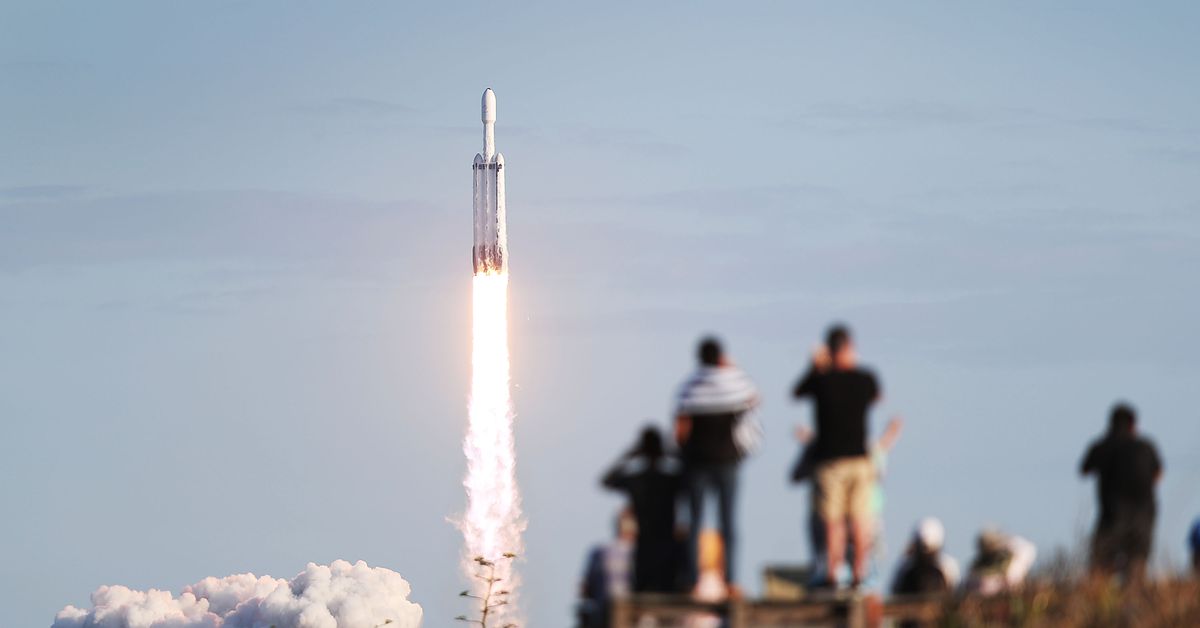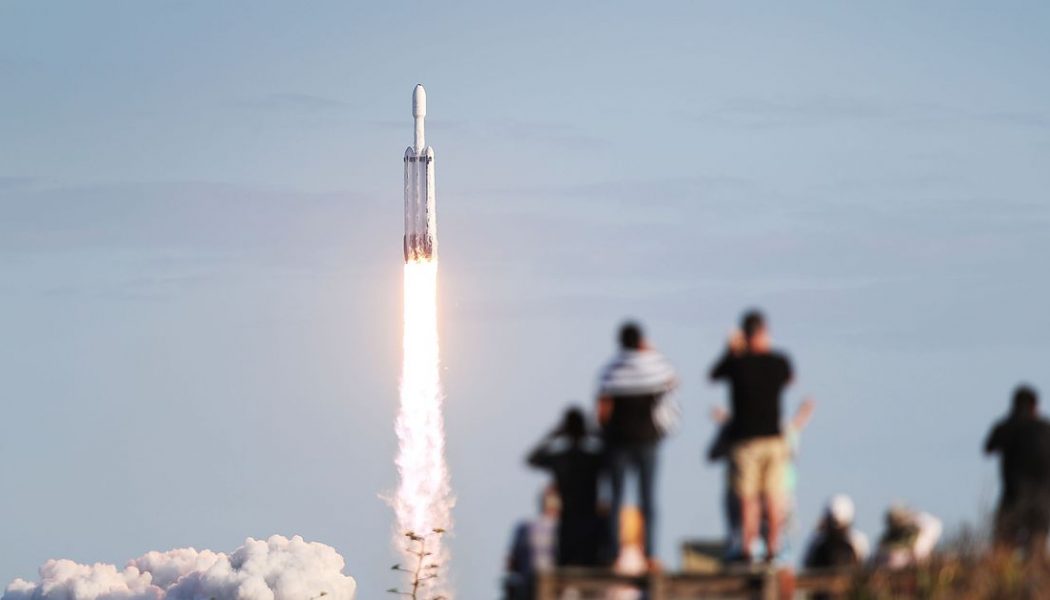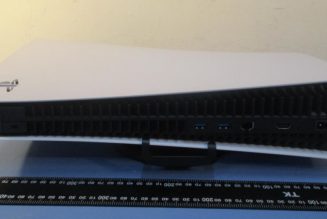
NASA chose SpaceX’s heavy-lift Falcon Heavy rocket to launch the first two elements of the agency’s Lunar Gateway, a planned outpost orbiting the moon. The two Gateway pieces, a propulsion module and astronaut living quarters, were originally designed to launch separately, but NASA picked SpaceX’s Falcon Heavy as a one-trip solution for $332 million.
Falcon Heavy, SpaceX’s strongest operational rocket, will send both Gateway’s Power and Propulsion Element (PPE) and its Habitation and Logistics Outpost (HALO) to space as one integrated payload “no earlier than May 2024,” NASA said in a statement Tuesday night. NASA originally planned to have the PPE, built by Maxar, and HALO, built by Northrop Grumman, mate in space after launching atop two separate rockets, but the agency decided last year to launch them together in a single mission to cut costs.
Instead, it “contributed to cost increases due to the redesign of several components” for both Maxar’s PPE and Northrop’s HALO, NASA’s inspector general wrote in a report released last year. It added that launching the two elements together could be risky, because the payload “may be too heavy for commercially available rockets or too long for the rocket’s fairing.” The rocket ultimately met NASA’s performance requirements, NASA spokeswoman Monica Witt told The Verge.
That report also found that combining the Gateway elements would result in “a longer duration flight to lunar orbit,” which could add extra costs to the mission. Among the costs included in the recently-announced $332 million price tag are “payload processing facilities, support contractors, range support, spacecraft propellants, communications, and telemetry,” Witt said. She declined to say whether the cost will support any changes to Falcon Heavy’s payload shell to accommodate the hefty size and weight of launching two Gateway elements that were originally designed for separate rockets. SpaceX didn’t return a request for comment.
$332 million was three times more than what the agency has previously awarded for another upcoming Falcon Heavy launch — NASA will pay SpaceX $117 million to launch its Psyche asteroid mission on the rocket in 2022. But SpaceX has commanded steep prices for Falcon Heavy launches before. In late 2020 SpaceX got $316 million from the Air Force for a single Falcon Heavy launch, but that hefty price tag “reflects mostly the infrastructure,” SpaceX president Gwynne Shotwell clarified. That infrastructure includes a new mobile service tower meant to satisfy requirements for processing national security-related payloads, according to an FAA filing.
Beyond price, NASA’s decision to combine the two elements meant some complicated juggling from each of the companies involved. It forced Maxar to cancel a contract it had already signed with SpaceX to launch the PPE and other satellites. The company paid SpaceX $27.5 million, including $6 million that came from NASA. To resolve this predicament, Witt said the agency “negotiated contractual modifications with Maxar to remove the previous launch service.”
And for Northrop, launching the HALO habitat together with the PPE forced the company to shave off cargo it originally planned to send packaged inside, according to the inspector general report. Now, “HALO will not be able to deliver additional cargo as originally envisioned which will result in an earlier than planned resupply in orbit,” which means an additional rocket launch might be necessary.










